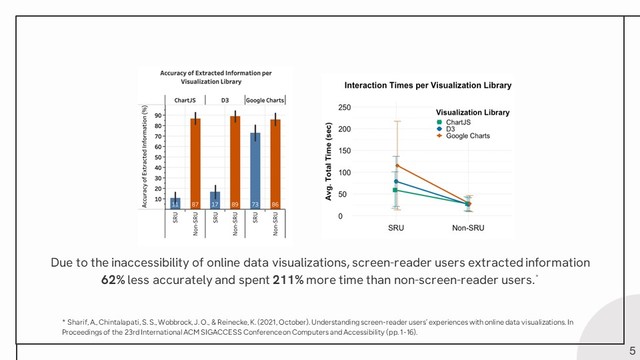VoxLens: Making Geospatial Data Visualizations Accessible to Blind and Low-Vision Users
Ather Sharif, Paul G. Allen School of Computer Science and Engineering
JavaScript visualization libraries are widely used to create online data visualizations but provide limited access to their information for screen-reader users. Building on my prior findings about the experiences of screen-reader users with online data visualizations, I present VoxLens, an open-source JavaScript plug-in that with a single line of code improves the accessibility of online data visualizations for screen-reader users using a multi-modal approach. Specifucally, VoxLens enables screen-reader users to obtain a holistic summary of presented information, play sonified versions of the data, and interact with visualizations in a drill-down manner using voice-activated commands. VoxLens improves the accuracy of information extraction and interaction time by 164% and 50%, respectively, over existing conventional interaction with online data visualizations.
